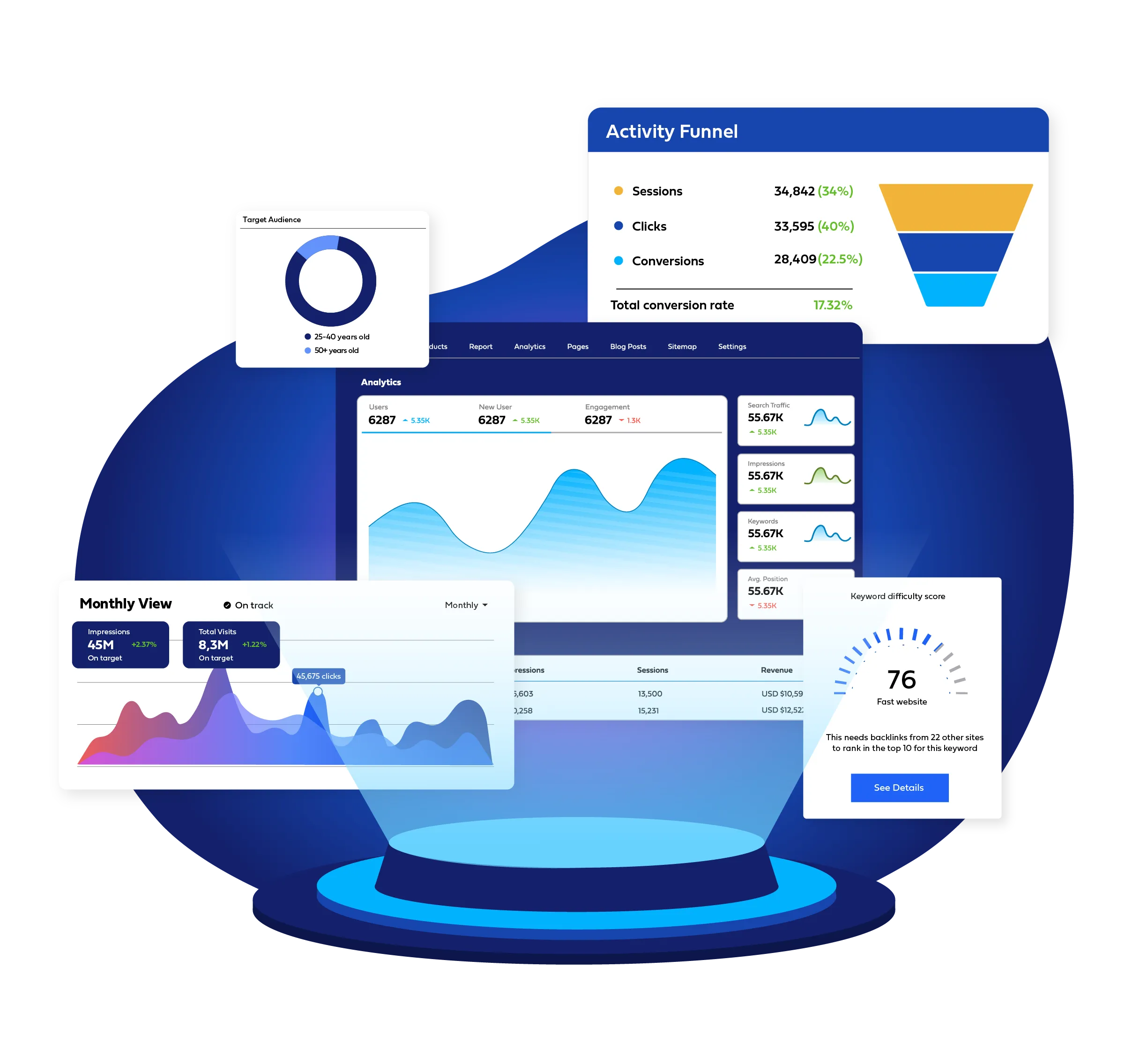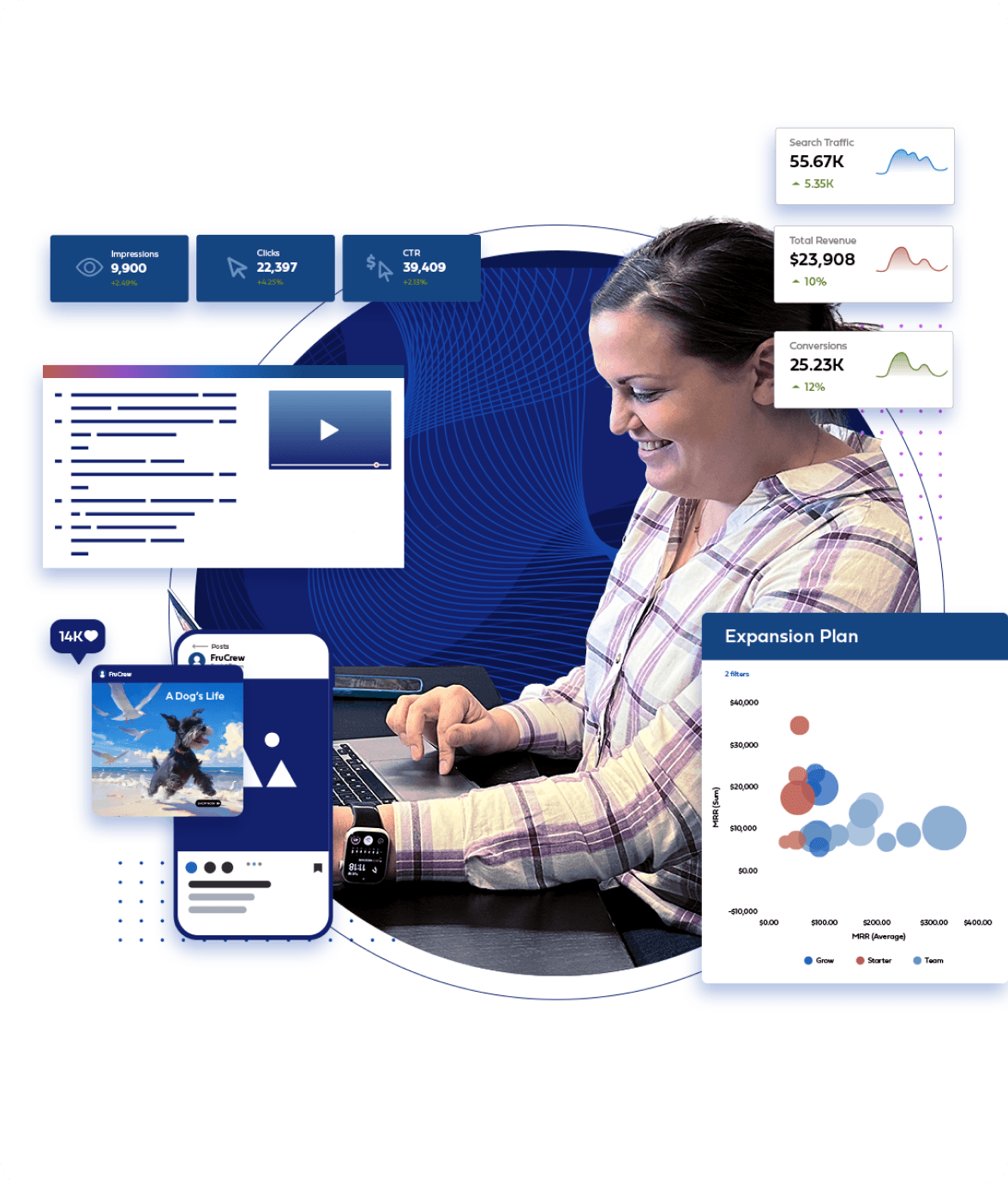From Clicks to Conversions, Optimize Your Online Strategy with Us
Achieve your business goals with Denver's most trusted digital marketing partner, providing innovative solutions for over 20 years.

Enhance your ROI through the effectiveness of digital marketing
Get a Free Consultation


